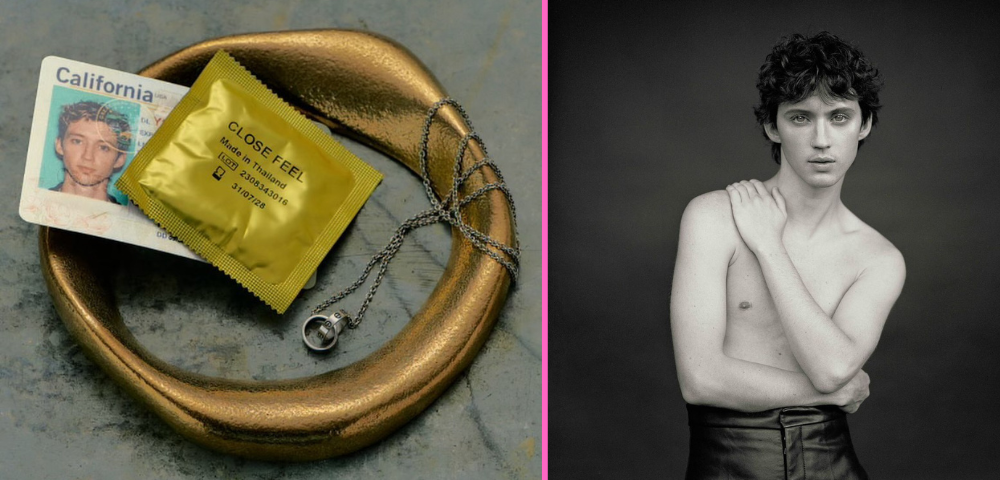
LGBTI rights in focus for Human Rights Week

HUMAN Rights Week is being marked around Australia this week, with events around the country to celebrate achievements in the name of human rights here and internationally, and to acknowledge the work that still needs to be done.
While progress has been made on the rights of LGBTI communities in Australia, some key rights have yet to be achieved in law, and across the world many LGBTI people face persecution and violence. The Star Observer spoke with some of the country’s leading advocates about the role of human rights in improving the lives of LGBTI here and overseas.
Director of Advocacy and Strategic Litigation for the Human Rights Law Centre Anna Brown said a human rights framework can apply to a broad range of issues affecting LGBTI people.
“The most fundamental would be the right to equality and non-discrimination, and that includes obviously non-discrimination on the basis of sexuality and gender identity,” she said, before highlighting how these issues needed to be understood in a broader context.
Using human rights to talk about LGBTI issues in Australia hasn’t always been straightforward, as religious institutions have at times framed the right to freedom of religion in opposition to the rights of LGBTI people not to be discriminated against.
“Rights are not absolute, they often conflict with one another,” Brown said.
“Freedom of religion and freedom from discrimination and the right to equality are two rights that often do compete and give rise to conflict, but religion doesn’t trump equality, and a balance needs to be struck.”
Despite there sometimes being a lack of understanding around how human rights frameworks should be applied, Brown argued they could be a useful political tool most people in Australia respect.
Academic and activist Dennis Altman argued this hasn’t always been the case, and that the gay liberation movement in Australia in the ‘70s was framed much more around combating stigma and vilification than human rights.
“It was really framed against the idea that gay men were deviant. So it was more asserting that that wasn’t true rather than talking about rights as a defined group,” Altman said.
He said without a tradition of civil rights like in the USA, the language of ‘equality’ could be more persuasive than the language of ‘rights’ in Australia.
“I don’t think Australians have a strong language of human rights,” Altman saiod.
“I think we have a stronger tradition of equality, so I think strategically it makes more sense to talk about equal rights than human rights in an Australian context, because I think that fits the Australian political language better.
“‘Human rights’ is very useful language when it’s used internationally because we’re talking about very real and systematic persecution and oppression.”
Altman expressed frustration at a lack of consistency in how human rights are discussed in Australia. He argued if people on any side of the political divide were going to frame an issue like marriage equality in terms of human rights, they should also be invested in other issues like the treatment of asylum seekers.
“People who are using the language of rights have to explain why they don’t seem very interested in much more horrendous denials of rights,” Altman said, discussing support for marriage equality by some who also support the government’s approach to asylum seekers.
“[I don’t have] a lack of sympathy for people arguing for those rights, it’s a feeling that we do not help ourselves if we look as if we have no interest in rights except when they apply to ourselves.”
Amnesty International Australia spokesperson Amelia Freelander echoed Altman’s comments, arguing the government potentially sending LGBTI refugees to Papua New Guinea blured distinctions between local and international human rights issues.
“Australia is not too far removed from such discrimination. Australia’s closest neighbour, Papua New Guinea, currently criminalises homosexuality with imprisonment for up to 14 years,” she said.
“The criminal punishes acts that are deemed ‘unnatural offences’.”
“This is why the decision by Australia’s Government to process all asylum seekers arriving by boat in Papua New Guinea has generated significant human rights concerns, including for LGBTI refugees.”
Altman said a human rights framework was useful for dealing with Australia’s refugee policy as well as other international issues.
“Theoretically there may be problems with but in practical terms it may be useful, and it’s a lot better than having to say, we aren’t deviant, we’re not sick… I think it’s a sensible strategy internationally,” he said.
Brown agreed that the language of human rights fits with international frameworks, but argued it had also been strategically effective in Australia and cited the historic Sex Discrimination Amendment Bill passed earlier this year as evidence of that.
“That happened after Australia had been criticised a number of times by the UN Human Rights Council itself,” she said.
“Sometimes it doesn’t get traction if you talk about issues in the language of rights, and you just have to appeal to common sense or emotions or logic, but… human rights enjoy a high level of support in Australia and they’re a useful tool for social change.”











Well considering the focus of the week, it would be a great week to hear from Tim Wilson on why he wants the Human Rights Commission abolished. (IPA to Abbott Govt. 82 Abolish the Australian Human Rights Commission)